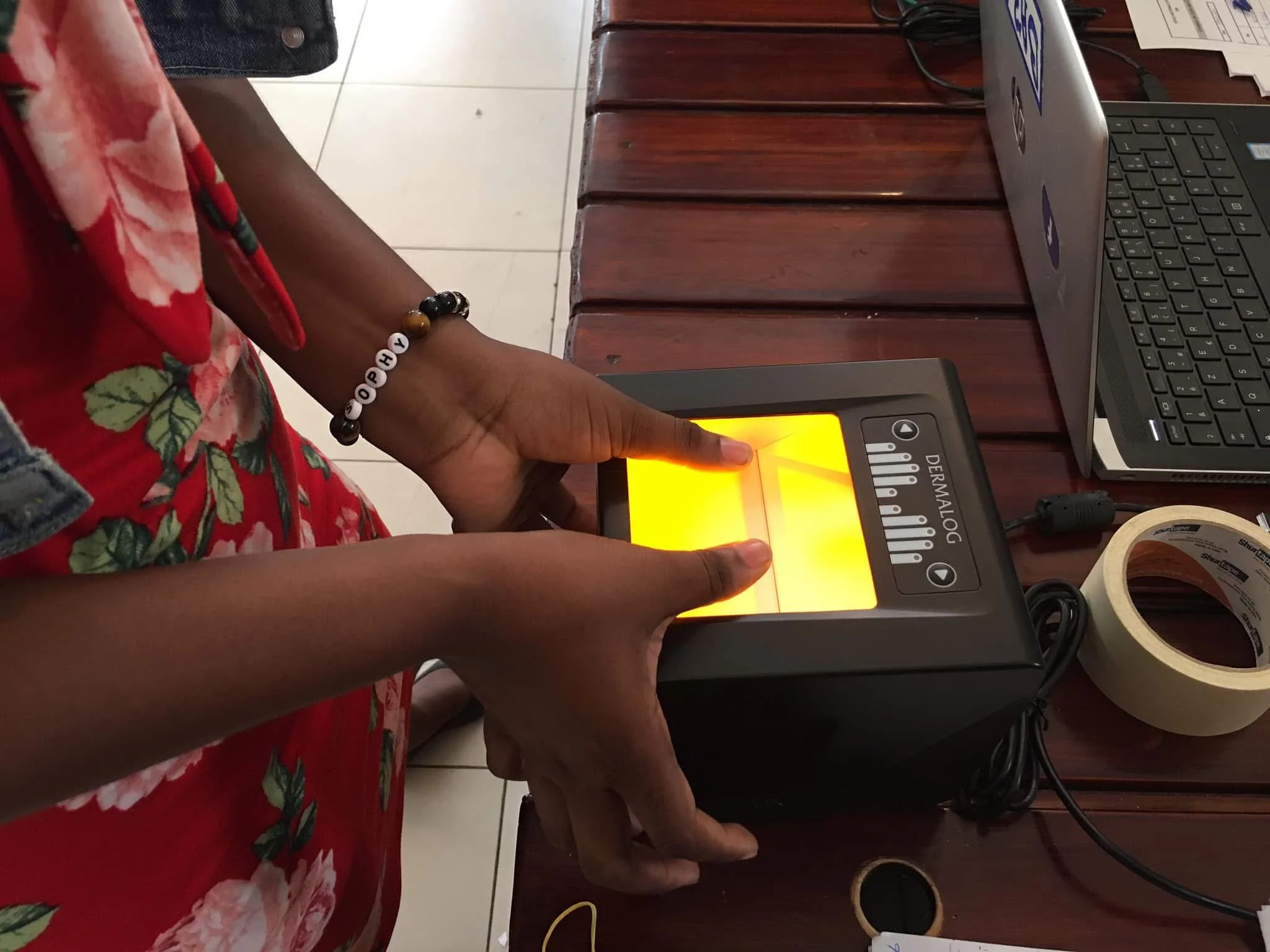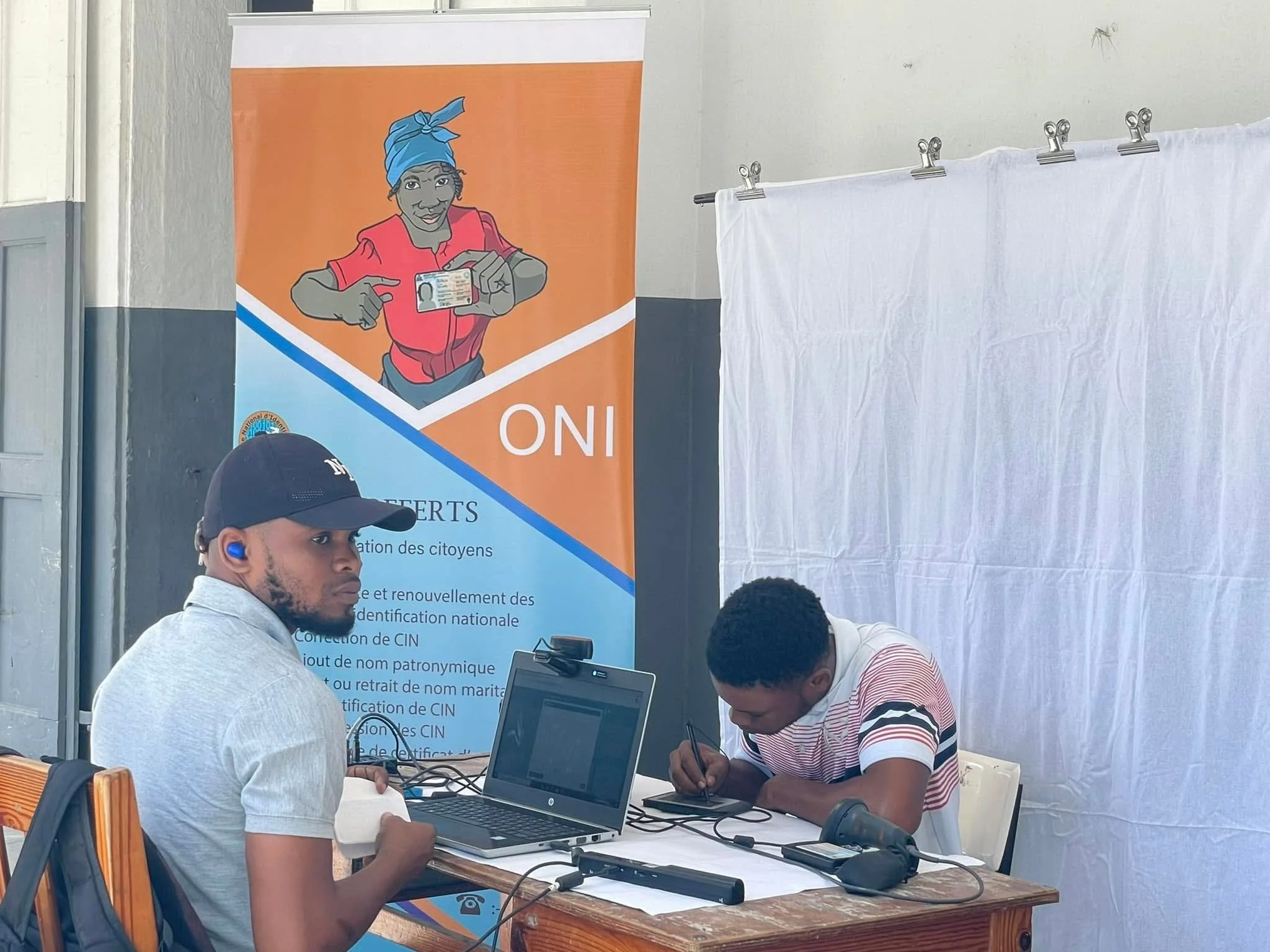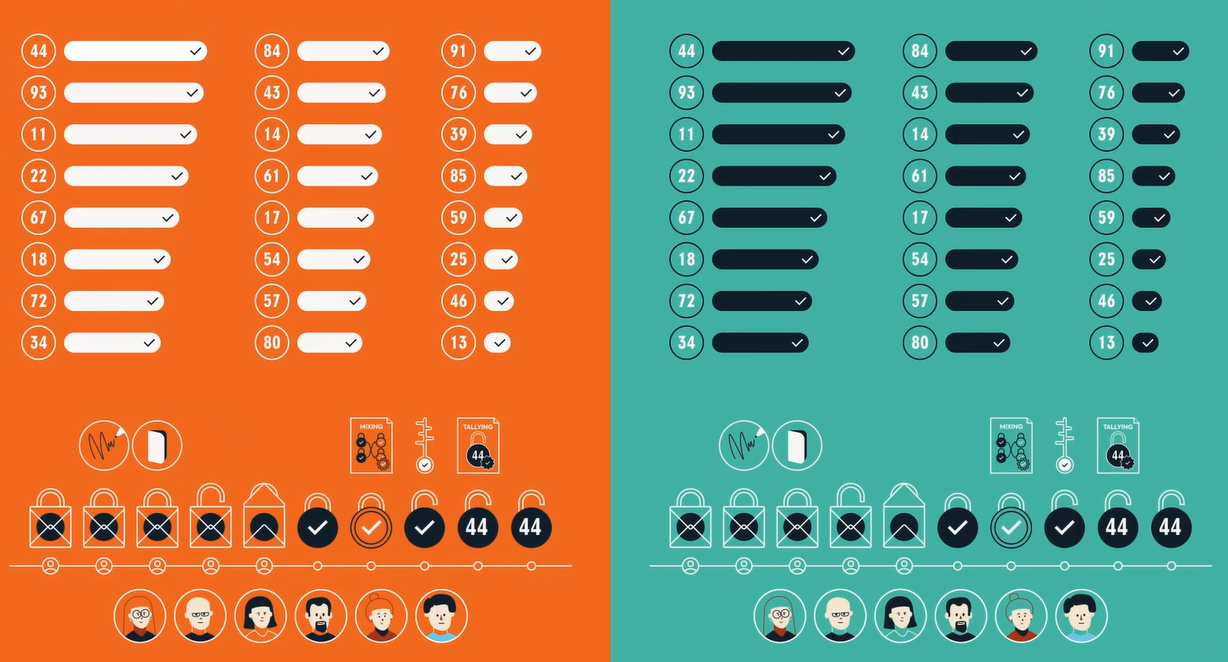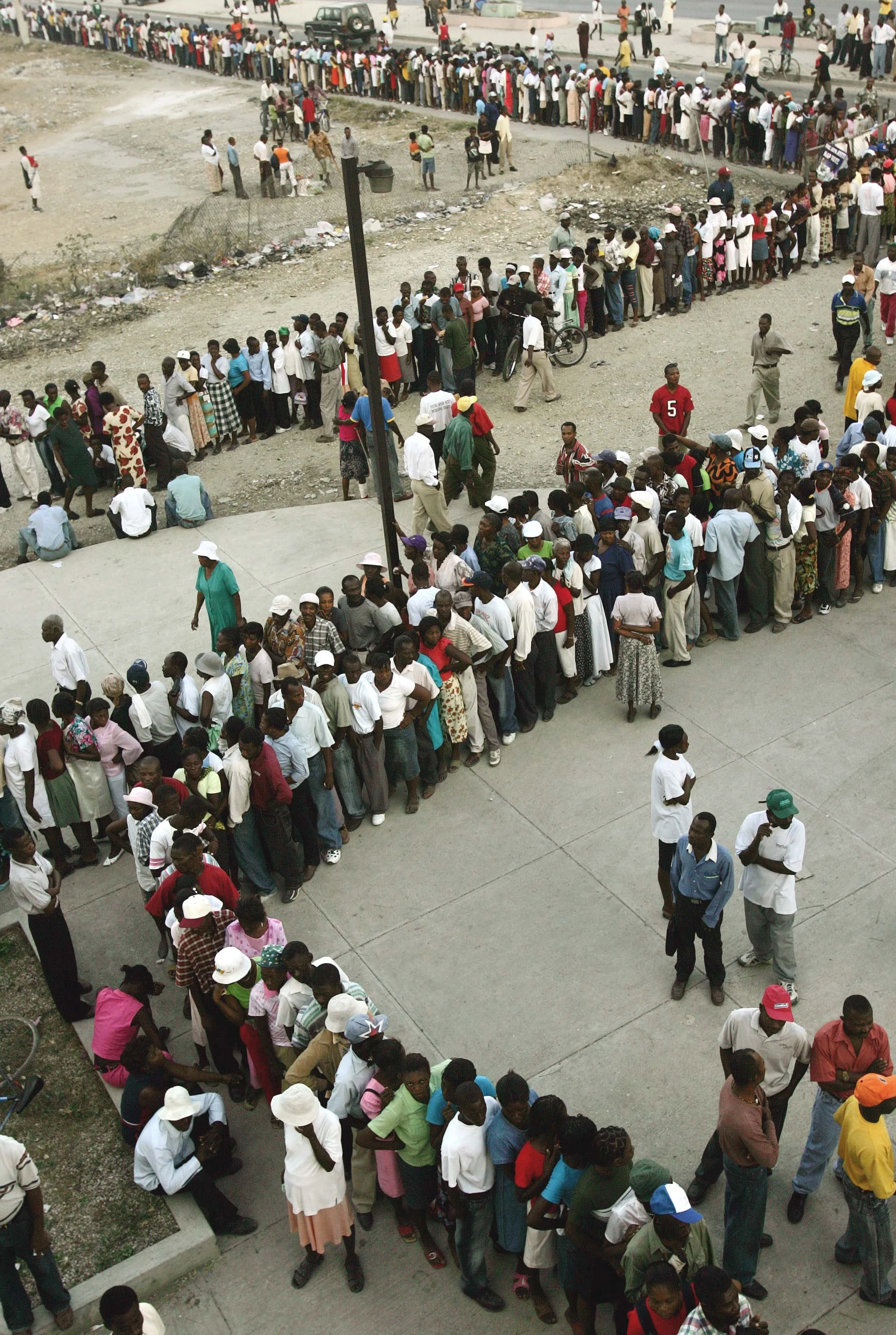Remote Voting in Haiti’s 2026 Elections: Opportunities, Risks, and Lessons from Global Models
The Provisional Electoral Council of Haiti aims to hold elections by 2026, marking the first elections in nearly ten years. Haitians are set to vote in general elections after delays since 2019 due to insecurity and instability.
While access to polling stations is limited and many eligible voters are part of the diaspora, Haiti currently does not offer remote voting. The last election faced challenges, including violence, low voter turnout, and irregularities, with only 19% of nearly six million registered voters participating in the 2016 presidential election of Jovenel Moïse; only close to 600,000 voted. With the upcoming election, remote voting could enhance electoral integrity and increase participation.
Haiti's President Jovenel Moise stands with his wife Martine during a Mass at the National Palace after being sworn-in at Parliament in Port-au-Prince, Haiti, Tuesday Feb. 7, 2017.
What is Remote Voting?
There are many ways that countries allow their citizens to vote remotely in elections. Some examples include:
Absentee voting: Voters deliver physical ballots via post or vote in foreign embassies or consulates outside the country
Online voting: Voters cast their votes through a website
Mobile/email voting: Voters send votes via text, email, and other methods
With remote voting, people are not required to vote in person at a polling station in their country. Democracies worldwide organize elections differently and have various procedures to oversee them. Remote voting is practiced internationally and is becoming more popular due to technological advances and greater voter mobility. Notably, in the United States, absentee voting is available, allowing citizens deployed abroad to vote remotely by mail. However, this practice has received significant media attention and scrutiny in recent U.S. elections.
Brazilians over 18 living abroad must register to vote and take part in presidential elections. They vote according to local time zones, and polling stations are set up in places with at least 30 voters, typically at embassies, consular offices, or locations where the Brazilian government offers services. Switzerland has adopted e-voting in certain areas, allowing voters to cast ballots online using their smartphones, computers, or laptops. This type of voting is convenient for voters and simplifies elections, which happen fairly often in Switzerland because of the country's political system, which emphasizes direct democracy.
Estonia I-Voting & Security Measures
Estonia has digitalized much of its electoral process and started internet voting, or "i-voting," in 2005. By 2023, most voters in Estonian elections had voted online. As a result, Estonia became a world leader in government service digitalization and was the first internationally to adopt "i-voting." The "i-voting" system lets citizens vote anywhere they want at their convenience.
Kenya is also a leader in election innovation. The Kriegler Commission in Kenya implemented a biometric registration system to verify voters' identities. This initiative led to removing over 1 million deceased voters from the electoral register. The country has also implemented the Kenya Integrated Electoral Management System, which includes biometric voter registration, electronic voter identification, and results transmission during tallying in Kenyan elections. India, the world's largest democracy, conducts national elections that involve mobilizing hundreds of millions of voters. Recently, India has been exploring the use of blockchain technology to facilitate remote voting. A proof of concept for a blockchain system to enable remote voting was recently developed under the guidance of the Election Commission of India.
Opportunities from Remote Voting
In the past, Haiti's election season has seen violence and chaos at polling stations. Given the unsafe security situation in the country, remote voting could help protect voter safety, encourage more voter participation, and prevent voter intimidation. It could also stop electoral irregularities like ballot stuffing. Research indicates that the main benefits of remote voting include improved accessibility, greater convenience, and, in some cases, potentially higher voter turnout.
Electoral workers manually count ballots at a tabulation center in Port-au-Prince, Haiti, Monday, Oct. 26, 2015. (AP Photo/Ricardo Arduengo)
As of 2025, a large portion of Haiti's population lives outside the country. About 1.2 million Haitians are residing in the U.S., with roughly 56% of them of voting age. Meanwhile, in neighboring Dominican Republic, approximately 500,000 Haitians live there. These figures, however, do not differentiate between those who have retained Haitian nationality or have naturalized in the U.S. or other countries and, therefore, would need dual citizenship to be eligible to vote in Haiti. Additionally, over 1 million internally displaced Haitians remain within Haiti. Many internally displaced people would find it difficult to vote using traditional, in-person paper ballot methods during Haitian elections. Remote voting could help address logistical challenges faced by voters in remote areas or communities where traveling to polling stations may be dangerous due to high levels of violence.
During the last elections, an electoral observation mission reported that poorly trained polling station staff, overcrowding at polling stations, which undermined ballot secrecy, and problems with the indelible ink used to identify individuals who had already voted were significant issues. There was also evidence of vote buying and voter substitution, as well as too many political party representatives authorized to vote at polling places other than those where they were registered. Additionally, ballots were delayed at several polling stations, and many voters could not cast their votes because their names were not on the official voter registration lists. At three polling stations, authorities had to shut down after fistfights erupted due to ballot box stuffing and other visible irregularities. At one polling station, groups of young men ripped up paper ballots as heavily armed police shot into the air to restore order before authorities closed the polling station. Remote voting could address some of the unique challenges that Haiti faces during its elections. With a large portion of Haitians living abroad and security challenges at polling stations, implementing remote voting might be a solution. Adopting digitalized systems such as "i-voting" to enable remote voting would have a range of benefits and pose an opportunity for Haiti to engage in "leapfrogging" by implementing technological solutions that many richer countries have not yet adopted.
Residents of Cite-Soleil line up to cast their vote in Port-au-Prince, Haiti, Tuesday, Feb. 7, 2006.
Challenges of Remote Voting
Across the world, remote voting has been a highly debated issue. Haiti has experienced political violence related to elections before, and any unconventional procedures on election day could increase suspicion, distrust, or unrest. If access to remote voting is uneven, it could cause discontent and weaken the legitimacy of the electoral process. After the last elections, voters rioted because they doubted the election results provided by the electoral council. This distrust led to the burning of multiple government buildings and homes, including an electoral office, a mayor's office, and schools.
To rebuild trust in the electoral process, voters need to be well informed about how to vote remotely; Haiti already has low voter turnout, with the previous elections recording the lowest participation rate in a national election in the Western Hemisphere since 1945. Any confusion could disenfranchise voters. The upcoming elections are rapidly approaching, and it remains uncertain if they will even take place. Therefore, if remote voting is to be implemented, voter outreach must begin immediately; otherwise, government communication may not reach voters in time.
Haiti's diplomatic missions haven't been used for elections. If remote voting begins, some locations abroad with many Haitian expatriates may become overwhelmed. Conversely, in parts of the U.S. like the Midwest and Northwest, voters might be disenfranchised due to a lack of nearby Haitian consulates or authorized voting centers. Since voting isn't mandatory in Haiti, predicting turnout abroad is difficult, complicating planning.
Legislation would also need to be amended to make sure that remote voting is legal in future elections, and preparations are put in place to confirm its feasibility. For example, in the upcoming referendum, scheduled before the next election, the draft referendum decree states:
Articles 39 and 56 say that voting must be done on paper and not using electronic voting machines.
Article 66 allows for the use of new information and communication technologies for the electronic transfer of the vote count to the Provisional Electoral Council.
It is essential to ensure that the proper documentation and infrastructure are in place before the next election if remote voting is to be adopted.
Technological Advances in Haiti
Haiti has made significant progress in preparing for the digitalization of government services, which could lay the foundation for future remote voting systems. Since 2006, Haiti's National Identification Office has been issuing the Carte d'Identification Nationale (CIN) to every Haitian citizen both in Haiti and abroad, free of charge. The CIN now functions as a national identity document, and by 2021, Haiti's National Identification Office required biometrics such as eye scans, photos, and fingerprints. Replicating Estonia's voting system would be a major challenge for the Haitian government. However, with the added layer of biometric verification, the CIN card could serve as a powerful tool to pave the way for remote voting. These cards enable unique voter identification, prevent fraudulent duplicate voting, and simplify the registration process.




Remote Voting by 2026
The Provisional Electoral Council faces immense pressure to hold an election by 2026, leaving a very limited time for planning and implementing new policies for remote voting. The top priority for policymakers should be to ensure that all Haitians of voting age possess their CIN card and are registered to vote. The Council must avoid a repeat of the 2010 elections, when voters did not receive their identity cards on time; a challenging task given the short timeframe and security concerns. Once the maximum number of registrations is achieved, the government could pilot a remote voting initiative, but it must consider the potential risks associated with launching a new voting process or system.
The last elections in Haiti were disastrous. Many voters were excluded, polling stations were attacked, and public trust in the process was at its lowest. Offering remote voting options could improve voting access, reduce security and logistical costs, ensure one person, one vote, prevent polling station overcrowding, and help prevent electoral fraud.
The priority for the Provisional Electoral Council should be ensuring that Haiti's first election in 10 years is conducted successfully and free of scandals or irregularities. If Haitians go to the polls anytime in 2026, that alone can be considered a success. By using technology, Haiti can streamline its election procedures and boost voter turnout by providing remote voting options for citizens both in Haiti and abroad.
Haiti Policy House is a not-for-profit institution focusing on Haitian public policy issues. Its research is nonpartisan. Haiti Policy House does not take specific policy positions. Accordingly, all views, positions, and conclusions expressed in this publication should be understood to be solely those of the author(s).
© 2025 by Haiti Policy House. All rights reserved.


